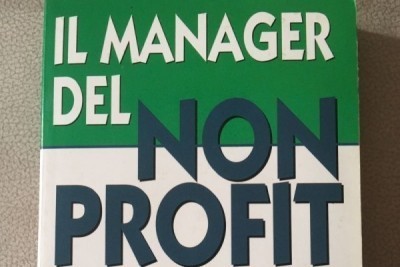Introduction
In 1998 the ‘Nonprofit Manager’ was the first book in Europe focused on the professional profile, tools and mindset of this strange-‘social race’ of emerging manager.
Peter Druker had already published many articles and books in the US, more focused on culture and strategy. Therefore, I felt the need to be very practical on the tools but also to give some ‘insight’ about the culture and the context in which these tools would be used. I had heard Peter saying ‘Culture eats strategy for breakfast’ and I knew it was true. Culture “eats” not only the strategies but also the tools- just like a plant (the tools) when planted in a good or bad soil (the culture).
The “nonprofit manager” book project was immediately accepted by Sperling & Kupfer, a leading Italian management publisher – one month after they received my proposal, which was the first and only one I had sent for the book. I had a plan of course, but did not expected such a quick and enthusiastic approbation by the editor. In the meantime, I was already a very busy father with my first two fantastic small children (Sophia 3 and Giordano 1 years old) and I was greatly engaged as a ‘nonprofit manager’ with the start up ‘ASVI’: I then had very little time to write it!
But writing ‘The non-profit manager’ at the end was important for many colleagues, who ‘understood’ to be not only ‘social workers’ but also “managers”, with responsibilities not only for the ‘service delivery’ of their organizations but also for the wellbeing of their people, for the independency from public sector by building the ‘funding mix’, for managing motivation and satisfaction within the organizations, being aware and managing the ‘stakeholders’ relationship. Finally, they were more aware of the tools and of the context.
Most of them did not consider themselves as ‘managers’ but just as ‘members, professionals’. This was (and still now!) a very dangerous mistake, firstly because you did not clearly take the responsibility of your role (i.e. looking for consensus rather than for the ‘right decision’, feeling responsible for paying salary at the end of the month and not months later, and so on). Secondly, they were not studying as a managers. I can tell you that being a non-profit manager is much more difficult than being a for-profit manager – people inside the organization are as important as the external beneficiaries, the donors, the Ethic and the incomes too…Therefore, you have many more stakeholders that really need to be well managed , and many ‘plans’ to be aligned. So, many manager thinking to be something else, no tools, no awareness. It was a real mess, when we started!
Therefore, I am happy to start together with you this journey in the non profit management mind-set, environment, story and, of course, tools.
Enjoy and comment!
Marco Crescenzi founder and President Social Change School, co-founder in 2006 of Euclid Network-Third Sector Leaders European Network, and Coordinator 2008-2010 of Leade2Leader- Italian Manager Network.
Find out about other publications by Marco Crescenzi and the Social Change School colleagues:
Social Innovation and Social Business; Evaluating the Non Profit and Social Enterprise Quality: Exemplary Cases of the Italian Third Sector: Towards the effective Social Investment; Campaigns for the Non Profit Organisations; International Guide for Professions and Work in the Non Profit sector; Non Profit Manager and Management. The ethical challenges; The Non Profit Manager; Guide for the Non Profit Funding; Guide for Project Management and European Funding.
Do you want to work in the NGOs? Apply now for the Admission and Professional Potential Evaluation Interview, one hour of in-depth dialogue with the managers and HRM of our partner NGOs!



